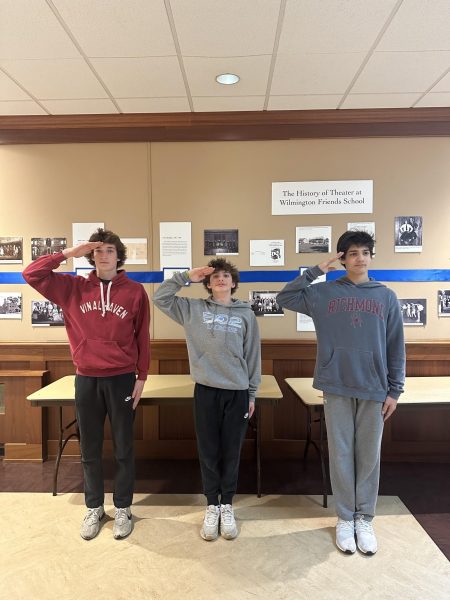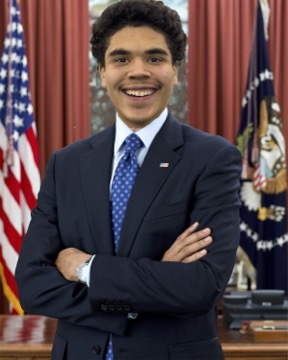Measles Outbreak in California Causes Nationwide Debate
March 2015

A baby gets their first vaccination.
With Ebola still ravaging Western Africa, the measles outbreak in Disneyland, California has raised alarm in families across the United States. Just in the month of January, there were 102 cases of measles reported. This has caused a nationwide debate over whether childhood immunization from not only measles, but other diseases such as the flu and polio, should be required by law. Sydney Gardner ‘16 expressed her opinion, “I think getting your kids vaccinated should be required by law because it not only keeps your kids safe but other people safe around them.” Another pressing topic brought to light by the debate is the concept of “herd immunity”. It is a form of immunity that occurs when a vaccination received by the majority of a population provides protection for individuals who have not developed immunity. Many of the vaccine supporters have used this concept to help their argument, but opposers question the effectiveness of “herd immunity”. The politics of medicine, morality, and free will are serious components amongst parents that refuse to immunize their children while facing growing pressure to do so.
An infected traveler visiting from overseas is suspected to have caused the outbreak that started in Disneyland. The traveler is thought to be from the Philippines because the particular characteristics of the virus match those of a virus from an outbreak in the Philippines in 2014. Measles is a very contagious disease, which is why it is able to spread so fast. According to a report published by MedScape, measles infects 90% of susceptible individuals and can stay airborne for up to two hours after the infected person has left. A “susceptible individual” is a member of a population at risk of becoming infected by a disease. In early February, the Wall Street Journal reported that over 85% of the cases in the United States right now are thought to have stemmed from Disneyland.
The Disneyland outbreak is not the first incidence of measles. This incident followed another case in 2000. In a study done by the New York Times from 2010 to 2014, the number of occurrences has risen exponentially. In 2014, the number of cases reached over six hundred, which was more than triple the number of cases in 2013. Twenty-three outbreaks of measles were reported in 2014, including one large one among Amish communities in Ohio. Although those numbers are high, they are nowhere close to the numbers before and right after the start of the vaccination programs in 1963. According to a report by the New York Times, in 1964, the number of infections was over 400,000 in the United States. In 1968, the number of reported cases was down to below 25,000. In five years of vaccinations, the number of cases went down by about 94%.
Similar to Ebola, the measles outbreak has raised major concerns in the United States over whether it will become something more serious. As the cases become more frequent, the ability to monitor everyone that has come in contact with the victims becomes a greater challenge. The longer it goes on, the more costly it becomes for health officials to track down everyone who has come into contact with the infected individual. Health department tax dollars are being diverted from other programs to help with the outbreak. In 2011, a study done by Forbes showed that 107 cases in sixteen different outbreaks cost local and state health departments an estimated $4 million. The cases in 2011 involved contacting 17,450 individuals, which required 83,000 personnel hours to help contain the disease.
The debate over vaccines has attracted national attention. Political parties use this issue as a way to further their 2016 presidential candidate runs. The candidates clash over the need for strict vaccination policies. Republican candidates, Chris Christie and Rand Paul, weighed in on the debate, saying that parents should be able to choose whether they vaccinate their kids or not. Democratic candidate, Hillary Clinton, sharing the opposite view, said, “The science is clear: The earth is round, the sky is blue, and #vaccineswork. Let’s protect all our kids. #GrandmothersKnowBest”. In talking with Karen Melnick, the middle and upper school nurse, about the topic, she stated, “I fully support the AAP (American Association of Pediatrics) and the CDC’s (Centers for Disease Control and Prevention) position on the importance of being vaccinated… and not just for measles.” She listed many reasons why vaccines are important, explaining that “serious diseases are still out there. Diseases don’t stop at the border, and many can spread easily.” She added, “Children need protection early. Vaccines mean fewer missed work days and school days, and can protect your family, friends, and community.” The big question that she and the rest of America share is whether the measles outbreak in Disneyland will lead to major vaccine policy reform in the near future.






































